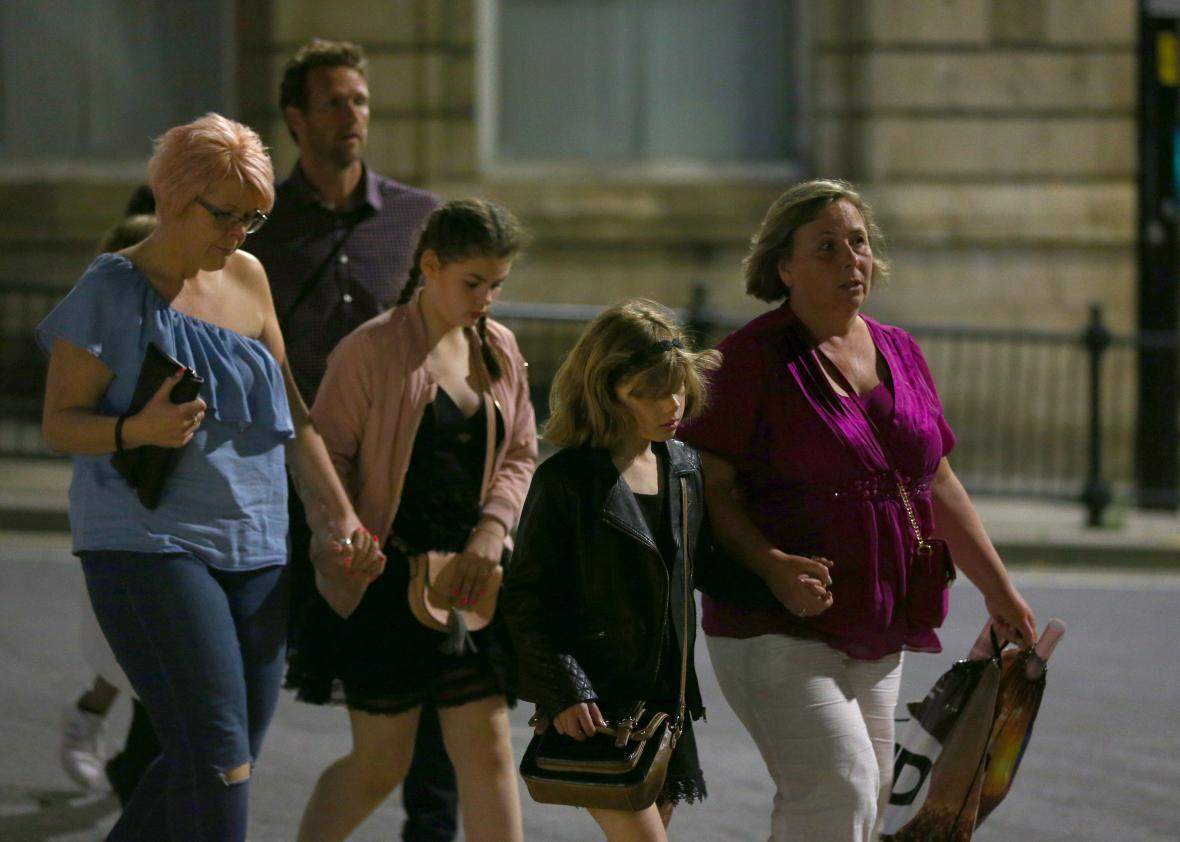British authorities have identified a suspect in what appears to have been a suicide bombing and an act of terrorism outside an Ariana Grande concert in Manchester, England on May 22. Details are still emerging, but as of late Monday night, authorities had confirmed 19 people dead and more than 50 injured.
The victims of Monday’s bombing will almost certainly be mostly girls and women. The Grande fan demographic also includes a number of older millennial women, gay men, and general lovers of pop music, of course, but her live concerts are largely populated by tween and teenage girls and their moms. By staging the attack at a Grande show, the perpetrator or perpetrators chose to target children who may or may not have had an adult around to help them through an emergency situation.
And they targeted fans of an artist whose global brand is one of blissful, unsubdued feminine sexuality. Grande has long been the target of sexist rhetoric that has deemed her culpable for any sexual objectification or animosity that’s come her way. Her songs and wardrobe are sexy, yet she’s maintained a coy, youthful persona; the combination has led some haters to argue that she’s made her fortune by making people want to have sex with her, so whatever related harm befalls her is entirely her fault.
Like her pop-superstar predecessor Britney Spears, Grande has advanced a renegade, self-reflexive sexuality that’s threatening to the established heteropatriarchal order. If the Manchester bombing was an act of terrorism, its venue indicates that the attack was designed to terrorize young girls who idolize Grande’s image. Terrorism works by making people afraid to go about their daily lives, doing the things that make them feel human and whole: going to work, shopping at the mall, traveling by plane, dancing to Latin music at a gay club, singing along to a fun pop tune that lets young women envision themselves as powerful, sexual beings. All concertgoers whose nights ended in panic or tragedy on Monday will suffer some degree of post-traumatic consequences in the coming months and years. But the teens and children in the audience, who are still in the middle of developing their conceptions of themselves and the world, may find those notions irrevocably altered.
Some observers on Twitter are using this moment to take cheap shots at Grande’s music and roll their eyes at the makeup of her audience, as if a disproportionately young, female fanbase makes an artist somehow unserious. “MULTIPLE CONFIRMED FATALITIES at Manchester Arena. The last time I listened to Ariana Grande I almost died too,” one Boston-based journalist tweeted. Meanwhile, some reports are saying dozens of unaccompanied children are holed up at hotels, waiting alone until their parents and guardians can come find them. These girls are survivors of an orchestrated attack on girls and girlhood, a massive act of gender-based violence.
